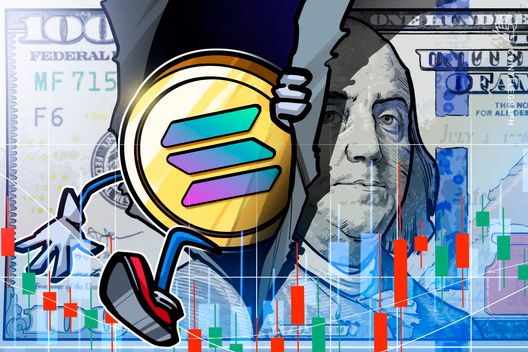Former Commodity Futures Trading Commission (CFTC) Commissioner Brian Quintenz has stirred up attention by publicly disclosing chat logs from a conversation with Tyler Winklevoss, co-founder and CEO of the cryptocurrency exchange Gemini. This unexpected move comes as Quintenz awaits Senate confirmation for his nomination to chair the CFTC, a position that would place him at the forefront of U.S. cryptocurrency regulation.
“I’ve posted here the messages that include the questions Tyler Winklevoss asked me pertaining to their prior litigation with the CFTC,” Quintenz explained, indicating the significance of these messages in relation to his nomination process.
The backdrop of this situation is a series of postponed votes in the Senate Agriculture Committee regarding Quintenz’s appointment, raising concerns about leadership stability at the CFTC during a pivotal time for crypto regulation. Acting Chair Caroline Pham is set to leave the agency following Quintenz’s potential nomination, which adds urgency to the confirmation timeline.
Quintenz’s decision to share these messages appears to be a strategic move to clarify his position and influence the Senate’s consideration of his nomination. With the CFTC poised to play a crucial role in overseeing cryptocurrency markets, the outcome of this nomination could impact the agency’s effectiveness as it navigates new regulatory responsibilities.

CFTC Chair Nominee Brian Quintenz and Tyler Winklevoss Exchange
Key points regarding the implications of the chat logs shared by Brian Quintenz with Tyler Winklevoss:
- Unusual Transparency
- Quintenz shared chat logs publicly, an uncommon move for a nominee.
- This act raises questions about transparency and influence in political nominations.
- Impact on Nomination Process
- Senate Agriculture Committee postponed Quintenz’s vote twice, impacting his confirmation timeline.
- Potential political maneuvering behind the scenes illustrated by Winklevoss’s lobbying.
- Regulatory Environment for Cryptocurrency
- The CFTC is set to become the primary regulatory body for cryptocurrency in the U.S.
- Lack of confirmed leadership could delay important regulatory developments in the crypto space.
- Quintenz’s Reluctance for Commitment
- He refrained from making promises to maintain independence and avoid conflicts of interest.
- This cautious approach emphasizes the importance of integrity in regulatory roles.
- Stakeholder Interests
- Messages included discussions about Gemini’s past issues with the CFTC, highlighting industry relationships.
- Winklevoss’s concerns reflect broader industry interests affecting market regulations.
These developments might impact readers by shedding light on the evolving regulatory landscape and potential delays in cryptocurrency governance, underscoring the importance of understanding the interplay between politics and industry.
Quintenz’s Unique Approach: Navigating Controversy in CFTC Nomination
The recent actions taken by Brian Quintenz, the nominee for CFTC Chair, have stirred the waters of cryptocurrency regulation, notably highlighting the intricate relationship between industry players and government entities. By publicly sharing his private communications with Tyler Winklevoss, Quintenz is attempting to clarify the conditions surrounding his delayed nomination—a strategy that is both audacious and unprecedented.
The Competitive Edge: Quintenz’s decision to disclose these conversations serves as a bold move to regain momentum in his nomination process. It not only reflects a proactive stance but also positions him as a candidate willing to communicate transparently with key stakeholders in the cryptocurrency space. This could resonate positively with crypto advocates who seek a regulator with a strong understanding of the industry’s nuances—especially as the CFTC is poised to oversee the burgeoning crypto market. His approach may attract supporters among cryptocurrency investors and firms who view transparent dialogue as a refreshing change from the often opaque nature of regulatory processes.
Potential Pitfalls: However, this strategy is not without risks. By revealing private messages, Quintenz opens himself to scrutiny regarding the ethics of his communications and the implications of perceived favoritism towards Gemini. The possibility of his actions being interpreted as an attempt to gain undue influence or leverage could raise eyebrows among Senate members and the public. Additionally, this controversy could backfire, positioning Quintenz as a divisive figure even before taking up his role, potentially alienating those who favor strict regulatory practices over perceived leniency towards industry players.
Impacts on Stakeholders: This scenario could benefit cryptocurrency advocates who desire favorable regulatory conditions, as Quintenz may be viewed as an ally who is sympathetic to their needs. Conversely, it could present challenges for more traditional financial institutions and regulators who may perceive this as a signal of a less rigorous enforcement approach. Their apprehensions might stem from concerns over fairness and regulatory integrity within the broader financial landscape, possibly exacerbating tensions as the CFTC steps into a more prominent regulatory role.
While Quintenz’s maneuver sheds light on the complexities inherent in the nomination process, it also serves as a reminder of the delicate balance between collaboration and conflict within the evolving cryptocurrency regulatory framework.













